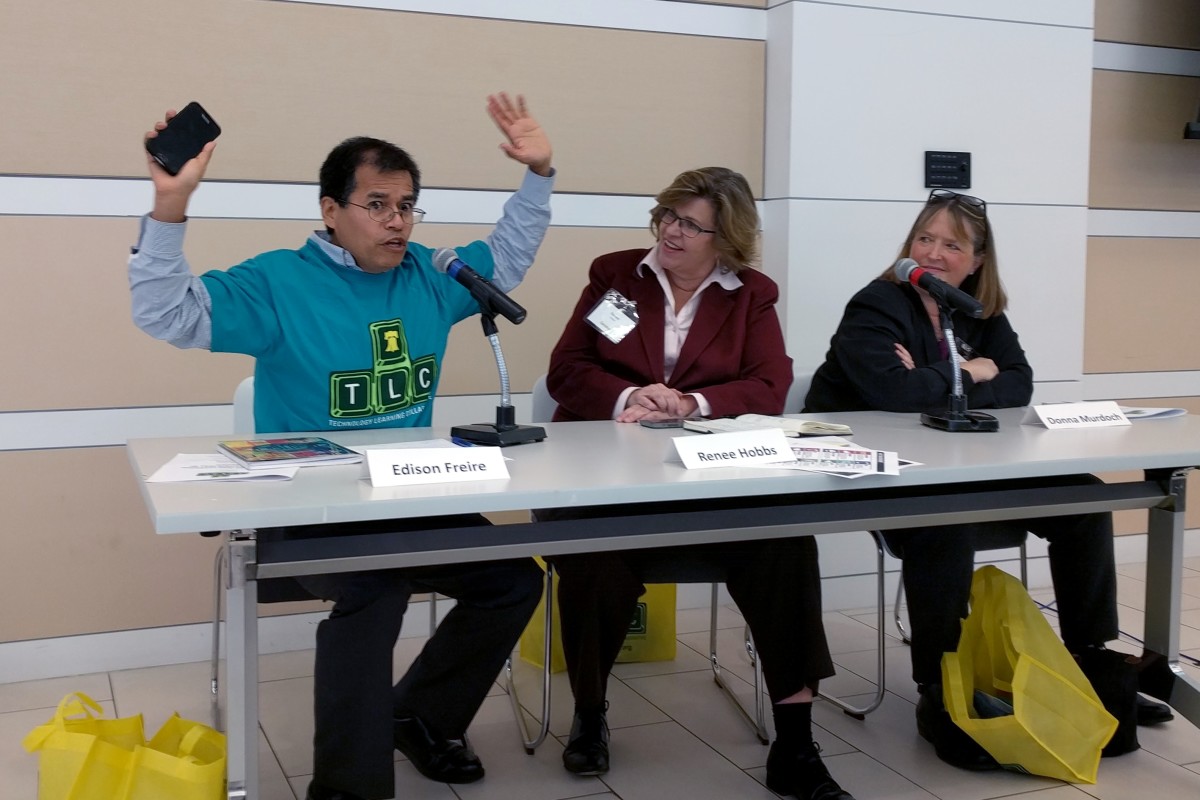Public computing centers must do more to tell their stories if they want to increase visibility and secure needed resources, tech education leaders told the Technology Learning Collaborative (TLC) 2015 conference.
The TLC, a partnership of Philly groups and individuals who support digital inclusion efforts, held its third annual conference at the Free Library of Philadelphia last Friday.
Public computing centers, which provide free PC and internet access to the community, increase computer literacy, education and digital citizenship among people in urban communities, according to speakers on the event’s opening panel.
However, visibility is a big challenge for public computer labs, said Renee Hobbs, founding director of the Harrington School of Communication and Media at the University of Rhode Island.
“Go to YouTube and type in public computing centers, and you get nothing,” she said. “Your single biggest priority needs to be telling your story so that the public and your patrons understand the value of the services you provide.”
Edison Freire, director of educational technology for the Philly school district and cofounder of the Urban Technology Project, agreed that public communication is critical for urban computer labs, which are frequently constrained by funding.
“Telling the story allows you to say, ‘We don’t have enough resources to do what you’re asking us to do,’” he said.
Another challenge for public computer centers is finding “empathic facilitators [who] recognize that the double-click of the mouse is difficult for some people,” said Donna Murdoch, founder of the Philly EdTech Meetup and associate professor of virtual online teaching at the University of Pennsylvania.
“The truth is, a lot of people come in and can’t even get that second click down. That’s where we’re starting,” she said.
Drop-in computer centers have proven popular in Philadelphia, according to a poll of the audience at the event. Last year, KEYSPOT centers around Philadelphia were open 45,296 hours, said Jennifer Kobrin, who manages the KEYSPOT program for the Mayor’s Commission on Literacy.
However, high traffic to Philadelphia centers has stretched their limited resources, and there are often not enough computers in the lab to meet demand, said members of the audience who work at the centers.
One attendee claimed that low-bandwidth internet connections are holding back public computer centers. He said that users are unable to stream video without significant buffering.
Hobbs responded that she was “shocked” to learn that the centers “don’t have the bandwidth they need.” She urged attendees to raise their voices on this issue as Comcast nears a new franchise agreement with the city of Philadelphia.
Comcast, an event sponsor, has signed up 70,000 people in the Philadelphia area to Internet Essentials, a low-cost internet service aimed at low-income households, said Bob Smith, Comcast government affairs and community investment professional.
Smith pledged continuing support for broadband adoption initiatives. “It is wonderful for us to have all of these great organizations in the community to work with on our common goal of increasing digital literacy and bridging the digital divide.”
What’s holding back digital inclusion efforts in Philadelphia?







